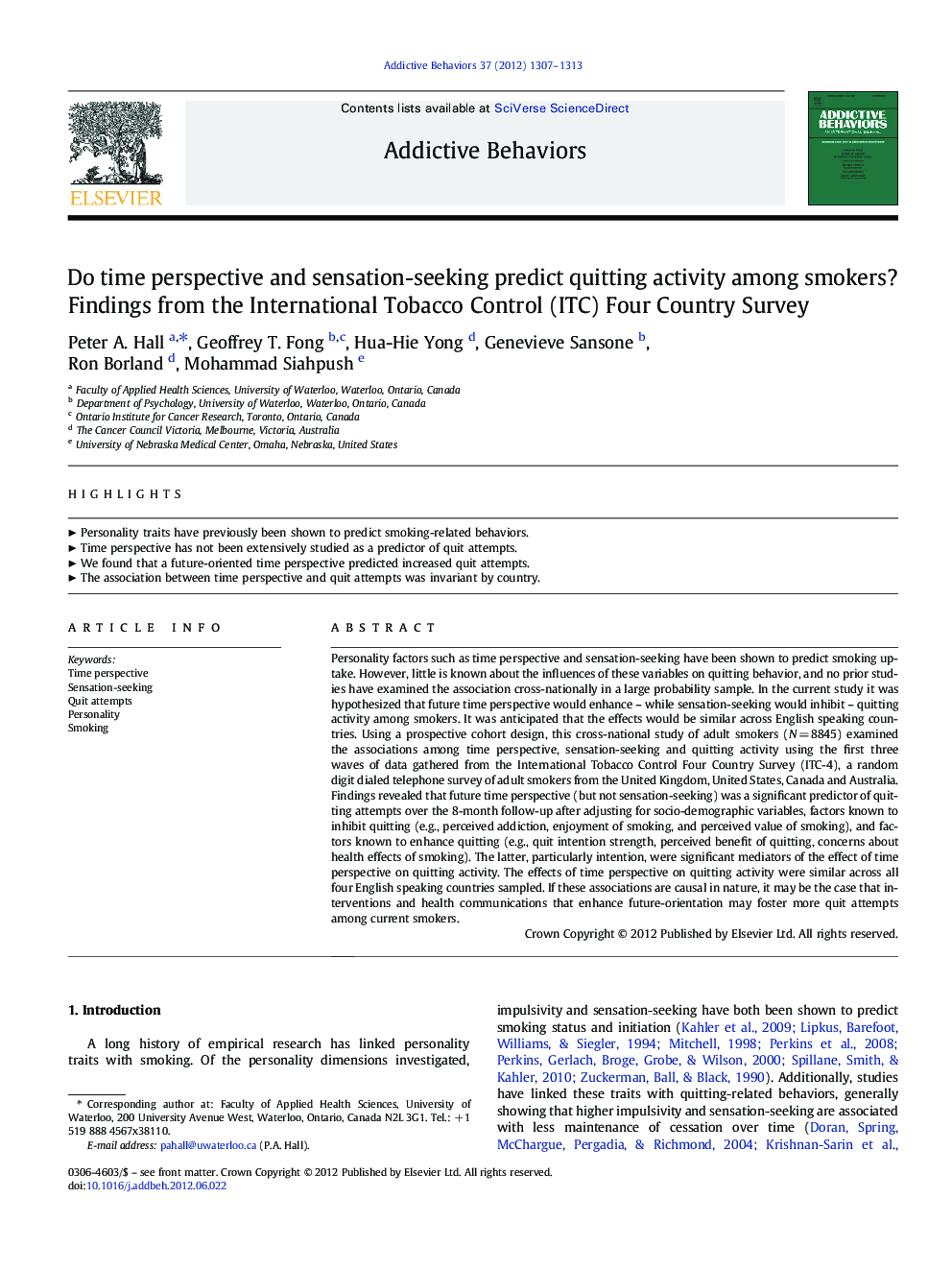| کد مقاله | کد نشریه | سال انتشار | مقاله انگلیسی | نسخه تمام متن |
|---|---|---|---|---|
| 899194 | 915365 | 2012 | 7 صفحه PDF | دانلود رایگان |

Personality factors such as time perspective and sensation-seeking have been shown to predict smoking uptake. However, little is known about the influences of these variables on quitting behavior, and no prior studies have examined the association cross-nationally in a large probability sample. In the current study it was hypothesized that future time perspective would enhance – while sensation-seeking would inhibit – quitting activity among smokers. It was anticipated that the effects would be similar across English speaking countries. Using a prospective cohort design, this cross-national study of adult smokers (N = 8845) examined the associations among time perspective, sensation-seeking and quitting activity using the first three waves of data gathered from the International Tobacco Control Four Country Survey (ITC-4), a random digit dialed telephone survey of adult smokers from the United Kingdom, United States, Canada and Australia. Findings revealed that future time perspective (but not sensation-seeking) was a significant predictor of quitting attempts over the 8-month follow-up after adjusting for socio-demographic variables, factors known to inhibit quitting (e.g., perceived addiction, enjoyment of smoking, and perceived value of smoking), and factors known to enhance quitting (e.g., quit intention strength, perceived benefit of quitting, concerns about health effects of smoking). The latter, particularly intention, were significant mediators of the effect of time perspective on quitting activity. The effects of time perspective on quitting activity were similar across all four English speaking countries sampled. If these associations are causal in nature, it may be the case that interventions and health communications that enhance future-orientation may foster more quit attempts among current smokers.
► Personality traits have previously been shown to predict smoking-related behaviors.
► Time perspective has not been extensively studied as a predictor of quit attempts.
► We found that a future-oriented time perspective predicted increased quit attempts.
► The association between time perspective and quit attempts was invariant by country.
Journal: Addictive Behaviors - Volume 37, Issue 12, December 2012, Pages 1307–1313